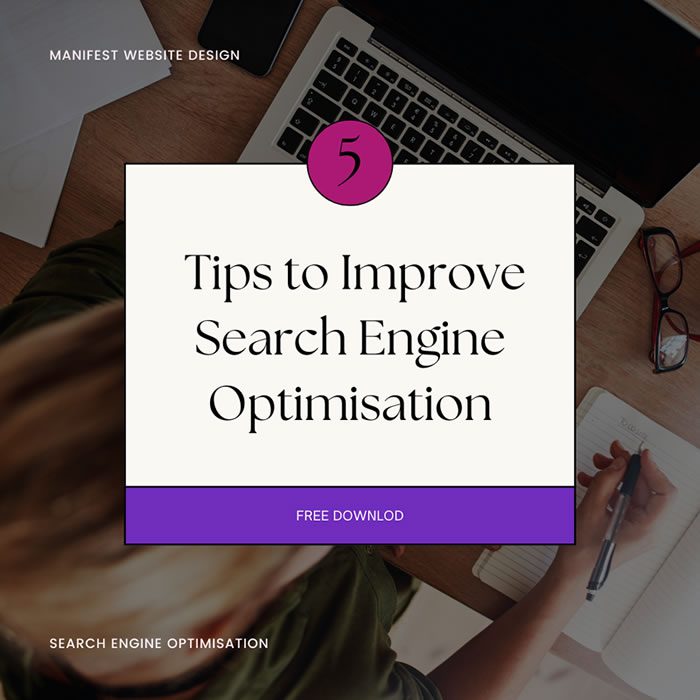What Is SEO in Digital Marketing?
2023 Guide
Picture your website as an exquisite dish in a fine dining restaurant, meticulously crafted by a renowned chef. To create this culinary masterpiece, you need the right blend of ingredients, skill, and presentation.
In the world of digital marketing, search engine optimisation (SEO) is your recipe for success. It may not sound like the most mouthwatering dish, but trust me, give it a chance.
But what exactly is SEO, and how does it make people come back to your website wanting more? Put simply, in a world where attention spans are dwindling and users demand instantaneous answers, SEO gives users exactly what they want on the first page of search results.
How Does SEO Work in Digital Marketing Campaigns?
Think of it this way: When people use search engines (e.g., Google, Bing, Yahoo) to look up something, they’re hungry for information. You want to create the best possible dish (your website) so that these search engines choose to present your creation first. It has to be so good that people just have to choose it. This means that you need to mix in the right “ingredients” such as the following:
- Keywords: These are the specific words and phrases people use when searching for something on the internet. By incorporating relevant keywords into your website’s content, you can make it easier for search engines to understand what your site is about and match it with users’ Google searches.
- Quality content: This is a cornerstone in SEO marketing. Engaging, high-quality content will not only satisfy your visitors but also signal to search engines that your website is a valuable source of information, which can consequently improve your rankings.
- Meta tags: These are snippets of text in your website’s code that provide information about your site’s content.
- Mobile-friendliness: With more people using smartphones and tablets to browse the internet, it’s crucial to have a website that looks and works well on different devices.
- Page speed: Have you ever heard of a dish that takes minutes before you can start tasting the flavour? Whichever restaurant made that, you probably wouldn’t go back. The same logic applies to websites.
- Social signals: While not a direct ranking factor, the engagement your content receives on social media platforms can influence your SEO.
4 Types of SEO Marketing in Website Design
Cooking up an SEO-optimised website is not as straightforward as the recipes in your kitchen cookbook. You need to create your very own marketing playbook. It should be tailored to your business needs and unique goals. If this isn’t your forté, that’s okay – you can always learn the craft or leave it up to the pros in a website design agency.
1) On-Page SEO
This type of SEO focuses on optimising the content and elements on your website pages to make them more search engine friendly. Key aspects of on-page SEO include keyword research, title tags, meta descriptions, heading tags, image optimisation, and internal linking.
2) Off-Page SEO
This refers to the tactics that you implement outside your website in the hopes of positively influencing your rankings. Some examples are link building, social media marketing, guest blogging, and influencer marketing.
3) Technical Optimisation
Now we move on to the technicalities. Websites are essentially made with code – and the code itself can be optimised. You’ll need to learn how to enhance site elements like XML sitemaps, URL structure, site speed, and mobile-friendliness.
4) High Quality Content
Content is the backbone of any successful SEO marketing strategy. Creating valuable, engaging, and shareable content helps you attract and retain visitors, while also signaling to search engines that you are knowledgeable about your niche.
Pro tip: Create content for humans first, search engines second. Google can tell if you’ve stuffed keywords in your articles. Also, experiment and have fun in the process. Try out other content formats like images, videos, and infographics.
Give Search Engines Like Google What They Want
Before anything else, I’ll tell you exactly what search engines like Google don’t want: plagiarised content, attempts to trick or manipulate the algorithm, and lousy work (i.e., websites with lots of spelling mistakes, broken links, or slow-loading pages).
Google, in particular, wants E-A-T content:
- Expertise: Produce well-researched and in-depth content. If you’re not an expert on a particular topic, consider collaborating with industry professionals or referencing authoritative sources.
- Authoritativeness: This can be achieved through guest blogging, earning high-quality backlinks, and building a strong online reputation. Don’t forget to include author bios for your content creators, highlighting their credentials and expertise in the field.
- Trustworthiness: Ensure your website is secure (using HTTPS), easy to navigate, and has a professional design. Always be transparent about your business by providing contact information, policies, and social proof.
Get a Free SEO Audit of Your Website
SEO is the perfect blend of technical finesse, keyword research, quality content, and more. When you give search engines exactly what they want, they’ll present your business’ website to more and more users.
Click here to run a free audit of your website
Here at Manifest Website Design in Australia, our SEO services are custom-made to satisfy the appetites of both search engines and users alike. If you’re still having second thoughts about asking for help, it’s okay – we offer free website audits with no commitment clauses. We’ll just show you your areas for improvement.
We may not be chefs at a 5-star restaurant, but we take pride in our 5-star reviews on Google. Whip up a winning SEO marketing strategy today.




